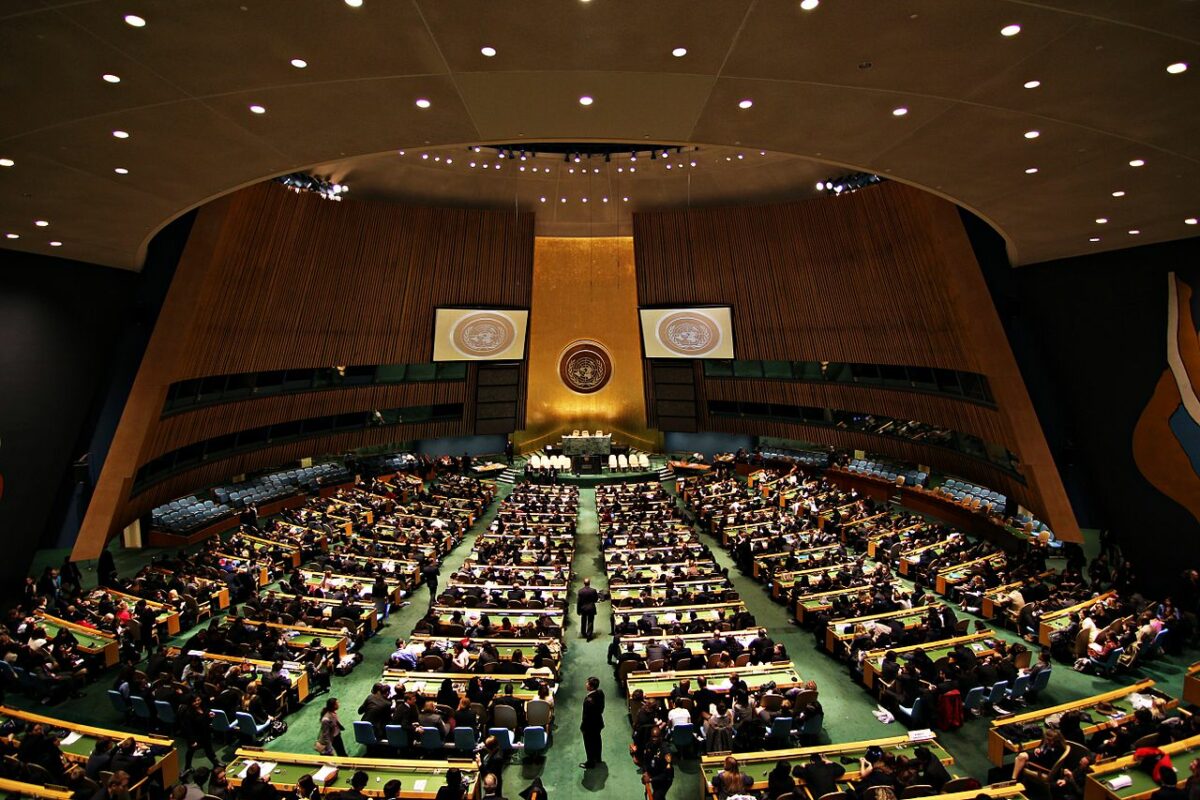Development donors who provide funding support to the UN System are mainly interested in the steady relevance, efficiency, effectiveness, and impact of their funding support in developing countries. Such multilateral development funding support guarantees the provision of rights-based socio-economic entitlements such as the right to education, public health care, housing, a living wage and other social goods for those with the greatest need in UN program countries. The building blocks for these rights-based socio-economic entitlements are provided for in legally-binding international instruments such as the international covenant on economic Social and Cultural Rights over which the UN is a custodian and guarantor and to which most developing countries are party by way of ratification.
However, corruption which results in the mismanagement of public resources undermines the capability of these multilateral development efforts to contribute to the provision of these rights-based socio-economic entitlements in UN program countries. Moreover, the United Nations Convention Against Corruption to which most UN program countries are party by way of ratification is a galvanising international legal instrument against the scourge of corruption in member countries of the UN system.
In October 1997, then United Nations Secretary General, Kofi Annan, in his address to the United Nations General Assembly on the United Nations Agenda for Development, heightened the importance of good governance in creating an enabling environment that strengthens accountability and the centrality of the rule of law as a mitigation measure against bad governance practices such as corruption. The post-1997 good governance agenda of the United Nations continues to sustain the promotion of an environment that propagates the preservation and the efficient use of public resources.
In an effort to combat the vestiges of the misuse of public resources through corruption, member States in 2003 signed the United Nations Convention Against Corruption which became the first legally binding international instrument aimed at fighting corruption. The United Nations Convention Against Corruption is a galvanising international legal instrument for the intensification of multilateral efforts to fight corruption which, by implication, places the responsibility of combating corruption on entities of the UN System, UN member states, as well as, the collective efforts of the broader civil society.
While these multilateral efforts seek to strengthen accountability, there is also an inherent recognition of the debilitating effects of corruption and the extent to which corruption undermines the capability of the implementing entities of UN development interventions in member countries, as well as multilateral development efforts to effectively and efficiently dispense the responsibilities of guaranteeing rights-based socio-economic entitlements to those with the greatest need without discrimination.
Ineluctably, embedded in the United Nations Convention Against Corruption is an inherit invitation to all entities of the UN System, UN program countries and the collective efforts of the broader civil society to strengthen good governance traditions which includes the clarion call for the propagation of the exercise of authority for the common good of citizens. This clarion call encompasses the extent to which the state is able to respect the rights of citizens as a voice for strengthening external accountability, and the preparedness of entities of the UN system, as well as UN program countries, to be held accountable through citizens and other stakeholders in UN program countries as a measure for controlling corruption.
There is continuous upsurge of interest from a broad range of individuals in UN program countries in support of the need to combat corruption and strengthen accountability, transparency and participatory social inquiry in the UN system through the process of whistle-blowing. However, the need to protect whistle-blower rights including the anonymity, confidentiality and identity of those willing to provide information towards fighting corruption in program countries of the UN System is of paramount interest.
The leading international US based Government Accountability project reported in August 2014 that entities of the UN system did not, generally, comply with the best practices in whistle-blower protection. Consequently, the government of the United States which contributes the highest portion of multilateral development funding support to the UN system (of which our continent, Africa, is the greatest beneficiary) had to withhold 15 percent of its contribution to the UN system until there was satisfactory evidence that the UN system was implementing best practices for whistle-blower protection.
The best practices for whistle-blower protection includes protection against retaliation for internal and lawful public disclosures; legal burdens of proof, statutes of limitation for reporting retaliation, access to independent adjudicative bodies including external arbitration, and, results that eliminate the effects proven retaliation. Contextually, entities of the UN system must put in place whistle-blower protection policies which encapsulate these best practices in order to strengthen accountability, transparency and participatory social inquiry.
Therefore, whistle-blowing can be used as a galvanising channel through which concerned citizens can exercise their voice to fight the scourge of corruption and safeguard the mismanagement of public resources, and, in so doing, preserve and guarantee rights-based socio-economic entitlements such as the right to education, public health care, housing, a living wage and other social goods for those with the greatest need.

